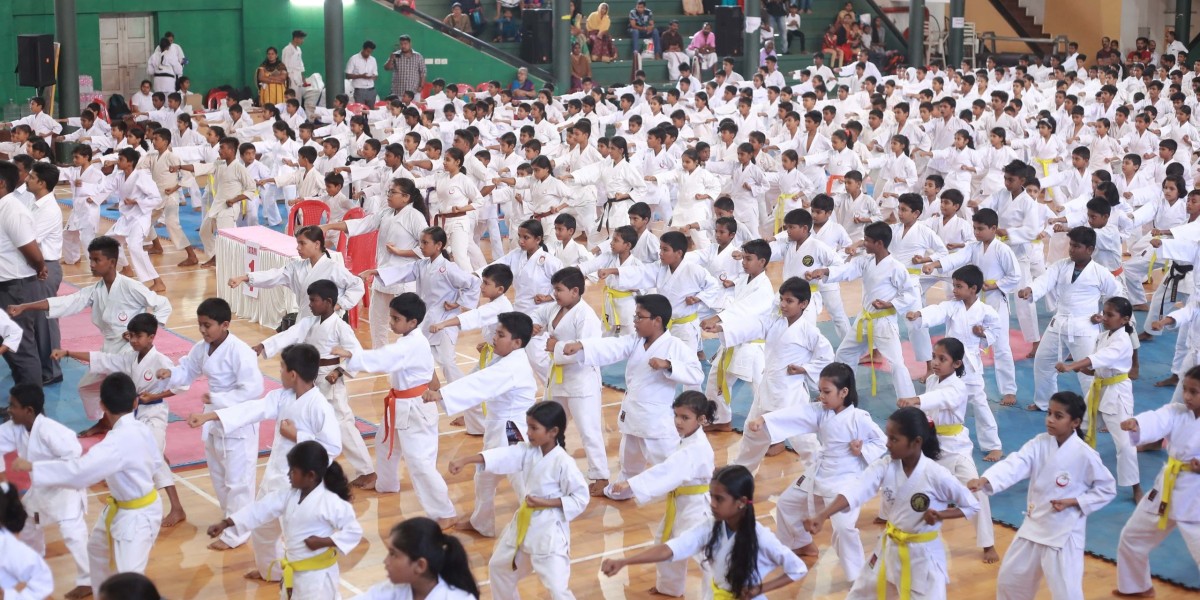The Roots
Karate: The roots of Karate can be traced back to Okinawa, Japan. With its origins influenced by Chinese martial arts, Karate evolved into a distinct form characterized by powerful strikes. It heavily emphasizes striking techniques like punches, kicks, knee strikes, and elbow strikes, aiming to maximize speed and power.
Other Martial Arts: Different martial arts boast distinct origins and core principles. For instance, Taekwondo, a Korean martial art, places a strong emphasis on high, swift kicks and dynamic spinning kicks. Meanwhile, Brazilian Jiu-Jitsu, originating from Judo, focuses on ground-based combat, specializing in submissions and ground control.
Techniques and Emphases
Karate: Karate centers on striking techniques and is renowned for its direct, forceful movements. Katas, predetermined forms, are integral to Karate training and serve as a structured way to practice and refine techniques. Practitioners develop strong stances, swift footwork, and precise striking methods.
Other Martial Arts: The techniques and training in different martial arts vary significantly, tailored to their particular domains. Judo, for instance, specializes in throws and ground techniques, while Muay Thai prioritizes clinching and the use of elbows and knees in striking.
Forms and Katas
Karate: Katas are a fundamental component of Karate, allowing practitioners to hone their skills through structured forms. These forms help improve precision, balance, and the fluidity of movements. Karatekas often dedicate years to perfecting their katas.
Other Martial Arts: While other martial arts also incorporate forms and patterns, they may not emphasize them to the same extent as Karate. Brazilian Jiu-Jitsu places more importance on sparring and rolling, while Taekwondo uses patterns known as "Poomsae" but focuses on high-speed kicks and sparring.
Philosophy and Spiritual Aspects
Karate: Karate places a strong emphasis on discipline, respect, and self-improvement. Many dojos incorporate elements of Eastern philosophy, such as Zen, into their teachings. The pursuit of self-mastery and the cultivation of a strong moral character are core tenets of Karate.
Other Martial Arts: Each martial art carries its unique philosophy and set of values. For instance, Judo's philosophy revolves around using an opponent's energy and balance against them while emphasizing mutual benefit and welfare. Brazilian Jiu-Jitsu promotes problem-solving and technique over physical strength. Values and philosophies can vary significantly between martial arts.
Sparring and Competition
Karate: Karate competitions typically involve point-based sparring, where competitors aim to score points by delivering controlled strikes to specific areas of the body. This approach is commonly seen in the Olympic Games, where full-contact strikes are not permitted.
Other Martial Arts: In contrast, other martial arts like Mixed Martial Arts (MMA) or Muay Thai feature full-contact competitions with fewer restrictions on strikes. Brazilian Jiu-Jitsu competitions focus on ground submissions and positional control. Rules and objectives for sparring and competition differ significantly.
Training and Ranking
Karate: Karate employs a colored belt system to denote a practitioner's skill level. Advancement through the ranks is achieved by demonstrating proficiency in katas, techniques, and sparring abilities. Progress is marked by belt tests and gradings.
Other Martial Arts: Various martial arts have their unique ranking systems. Brazilian Jiu-Jitsu, for example, uses a colored belt system (white, blue, purple, brown, and black), with promotions based on technical skill, competition performance, and training duration.
In summary, Karate represents just one facet of the diverse world of martial arts. Understanding the differences between Karate and other martial arts is not about determining superiority but recognizing the rich and multifaceted nature of martial arts practices. Whether you're drawn to Karate's powerful strikes, Tai Chi's flowing movements, Brazilian Jiu-Jitsu's ground combat, or Taekwondo's dynamic kicks, the world of martial arts offers an array of styles for individuals to explore and embrace.
Nochikan Karate International is an academy that offers world- class training in Shotokan.Nochikan is devoted to promoting and developing, the physical and internal well- being of its scholars.The academy offers classes for children and women. Classes to help develop physical and internal strength. as well as improve focus and attention. We also offer classes for grown-ups and children.








